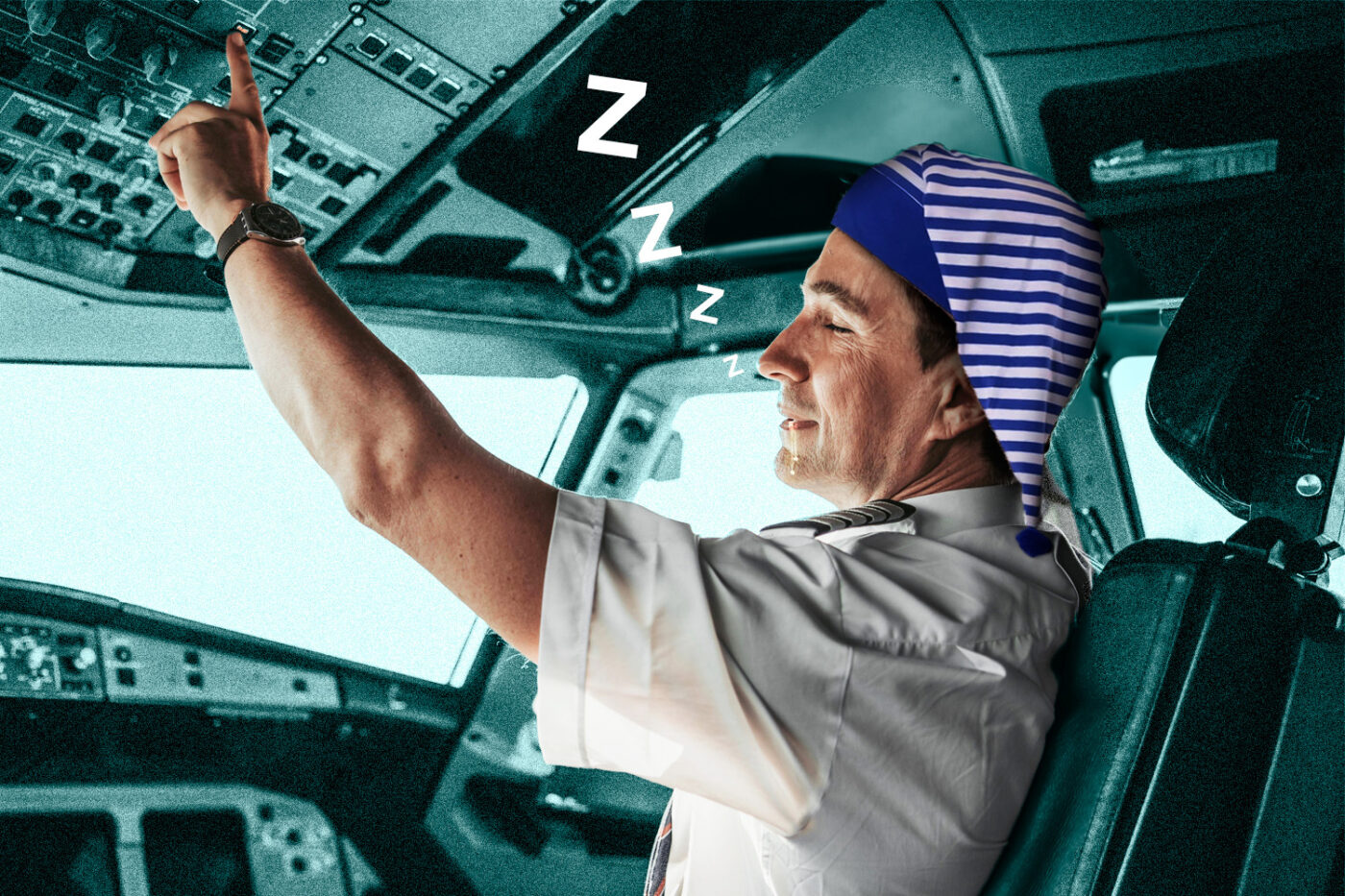Airline pilots have admitted in a worrying survey that 56% of them have slept while flying and 29% had woken up to find their co-pilot asleep as well.
The news has been overrun in recent weeks with reports of commercial aeroplanes — mostly Boeing’s — undergoing dangerous and unexpected engineering failures mid-flight. In January, parts of an Alaska Airlines 737 Max simply blew off the plane mid-flight and only this week a LATAM flight from Australia to New Zealand took a dramatic plunge injuring swathes of passengers.
And yet, a recently rediscovered pilot survey suggests that the “biggest threat” to passenger safety may be a far more human-centric risk: pilot exhaustion. Conducted by the British Airline Pilots Association (Balpa) revealed that over half (56%) of pilots have admitted to falling asleep while in control of a plane. Among those, 29% reported waking up to find the co-pilot asleep as well.
WATCH: How A Boeing-727 Vanished For Twenty Years: The Men Behind Aviation’s Greatest Unsolved Mystery
The Balpa survey of 500 commercial pilots revealed that 43% felt their abilities to fly safely had been compromised by tiredness at least once a month in the past six months, with 84% saying their accidental naps had happened at some point during that period. In an even more damning statistic, 49% of pilots identified tiredness as the biggest threat to flight safety.
While tiredness has recently gained recognition as a much wider public health risk — even described by some as a long-overlooked epidemic — the problem is particularly acute for pilots who, due to the nature of their job traversing time zones and working to strict flight schedules, are far more at risk of unexpected tiredness than many.
The survey resurfaced on Reddit this week among wider discussion around aviation safety — which is under hotter scrutiny than ever amid the aforementioned engineering failures — and a number of pilots and adjacent aviation professionals stepped up to share their experiences of mid-air tiredness.
TIL a survey found that 56% of commercial pilots admitted to sleeping while flying and 29% had woken up to find the other pilot asleep as well
byu/Losttothesauce intodayilearned
One industry insider explained how demanding pilot timetables can be:
“The major airlines will fly you from LAX to JFK and then to DCA and give you 11 hours rest once the plane parks at the gate until you push off the gate [once again].
You have to be at the airport 1 hour before departure and sometimes it takes 1 hour from brake-set to be in a hotel room ready for bed.
Then they expect you to go to Denver the next day, sit at the airport for 3 hours doing nothing and then fly to Sacramento for yet another 11-13 hours ‘rest'”.
RequiemSkyy
Another line of discussion brought up the issue of how “boring” the experience of flying plane can be, contrary to popular belief. Though high stakes and high-skilled, much of the time pilots are sat ‘keeping an eye’, effectively waiting to act if something goes awry. One Redditor said this:
“I’ve heard a pilot describe flying a large commercial airliner as being a glorified bus driver, and missed the experience (though not pay) of smaller planes. I’m sure there’s a lot of hyperbole there but also probably some truth to it…”
CaptainCanuck93
While there’s no excuse for passenger safety being put at risk, it seems that engineering failures are far from the only issue in the mix. Commercial pilots appear to me overworked but understimulated, and this could be posing even bigger risks than endemic engineering issues.
However, we’re not trying to let Boeing off the hook here; they’ve got a lot of questions to answer in the coming weeks. We just thought it was worth reminding people that there’s more to keeping a plane in the skies than decent rivets…
